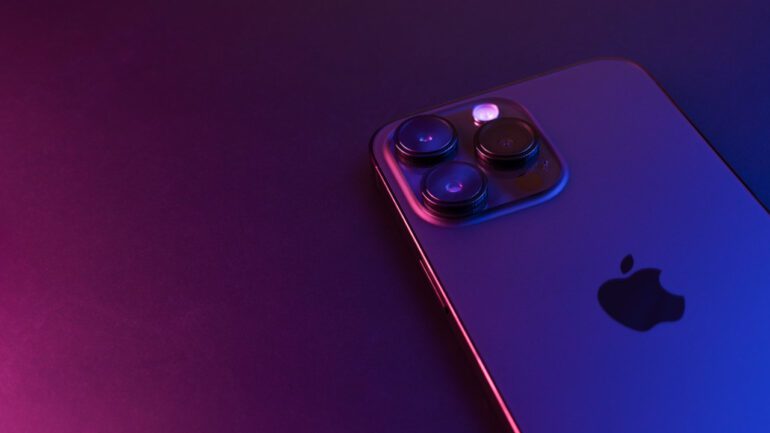- Apple is in talks with Google to license the Gemini model for AI features like Siri in future iPhone updates.
- Similar discussions have occurred with OpenAI, the maker of ChatGPT.
- Integration of Google’s Gemini could introduce new cloud-based AI features to iPhones.
- Terms and branding of the agreement are pending, with details expected at Apple’s Worldwide Developers Conference.
- Google’s Gemini could enhance Siri’s capabilities, addressing criticisms of its performance.
- Apple’s internal AI models, including Ajax and Apple GPT, reportedly lag behind competitors.
- Google’s Gemini is perceived to rival OpenAI’s GPT-4 Turbo in language model capability.
- Regulatory scrutiny looms over the potential partnership between Apple and Google.
- The collaboration could significantly impact the AI market, given Apple’s vast ecosystem and existing search partnership with Google.
Main AI News:
As reported by Bloomberg on Monday, Apple is currently in negotiations with Google to potentially license the Gemini model. This move aims to power AI features, such as Siri, in an upcoming iPhone software update expected later this year, sources familiar with the matter revealed. Notably, similar discussions have also taken place between Apple and OpenAI, the creators of ChatGPT.
Should the talks materialize into an agreement, the integration of Google’s Gemini into iOS 18 could usher in a wave of innovative cloud-based AI features for Apple’s smartphones. These features may encompass functionalities like image creation or essay writing prompted by simple cues. However, while the discussions are underway, the specifics regarding terms and branding remain to be finalized, leaving the implementation details shrouded in uncertainty. It’s anticipated that no formal announcement regarding the deal will surface until Apple’s annual Worldwide Developers Conference in June.
The incorporation of Gemini holds the promise of addressing the shortcomings of Apple’s voice assistant, Siri, which has faced criticism for its inability to match the capabilities of newer AI assistants driven by large language models (LLMs). Reports have long circulated regarding Apple’s internal dissatisfaction with Siri’s performance and the quest for potential solutions. Earlier this year, it was disclosed that Apple had been experimenting with OpenAI’s ChatGPT API in a beta version of iOS 17.4 to bolster Siri’s capabilities.
Despite Apple’s efforts in developing its AI models, including the Ajax large language model and the rudimentary chatbot Apple GPT, industry observers suggest that the company’s LLM technology trails behind competitors. Hence, forging a partnership with Google or another AI provider emerges as a viable option. Notably, Apple remains committed to leveraging in-house solutions for AI features that operate locally on the iPhone.
Google introduced Gemini, a language-based AI assistant akin to ChatGPT, in December, and it has been continuously enhancing it since then. Many experts perceive the larger Gemini models to be on par with OpenAI’s GPT-4 Turbo, which fuels subscription versions of ChatGPT. Recently, with the debut of Gemini Ultra and Claude 3, OpenAI’s supremacy in perceived LLM capability has diminished.
The potential collaboration between Apple and Google carries significant implications for the AI landscape, given Apple’s massive ecosystem comprising over 2 billion active devices worldwide. If finalized, the partnership would build upon the existing search agreement between the two tech giants, where Google pays Apple billions annually to feature its search engine as the default option on Apple devices.
Nevertheless, regulatory scrutiny looms over the proposed partnership, particularly in light of ongoing legal challenges regarding the current search deal between Apple and Google. Both the US Department of Justice and the European Union are closely monitoring the situation, with the latter pressuring Apple to facilitate easier switching of default search engines away from Google.
Amidst the potential financial gains and regulatory challenges, Apple’s selection of Google for its cloud AI endeavors could pose a significant setback for OpenAI in terms of mainstream adoption of its technology. Yet, any collaboration with Google or OpenAI might serve as a temporary solution until Apple can refine its own LLM-based AI technology to meet industry standards.
Conclusion:
The potential collaboration between Apple and Google for AI advancements in iPhones signals a significant shift in the market landscape. If realized, this partnership could not only address Apple’s AI shortcomings but also impact the broader AI industry, with implications for competition, regulation, and technological innovation. Both companies stand to benefit from leveraging each other’s strengths, but regulatory challenges and market dynamics will likely shape the trajectory of this collaboration.

